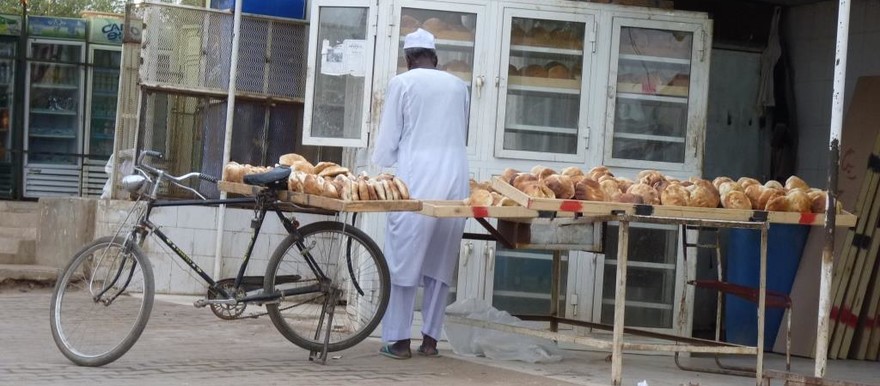Discontent has spread in Ed Daien town of East Darfur State due to the lack of flour in the town’s markets for the second time within two weeks’ time. The shortage caused long queues to form at the bakeries.
A number of citizens from Ed Daien said that the town had again witnessed a lack of flour in its markets and added that the price of bread exceeded 4 pounds this time.
It was reported earlier this month that a flour company in Khartoum had cut production by 50% owing to a shortage of foreign exchange.
Some citizens in Ed Daien, however, attributed the soaring prices to the deteriorated security situation along the roads leading to the town. This is putting more obstacles on commercial activities in the region.
Meanwhile, in Nyala, petroleum products have increased in price with a gallon of gasoline up to 18.5 Sudanese pounds and diesel 15.5 pounds at gas stations, while black market prices can reach to 30 pounds.
Witnesses attributed the gas scarcity to the slowness of fuel convoys reaching the state, about ten days, and possible hoarding by traders.




